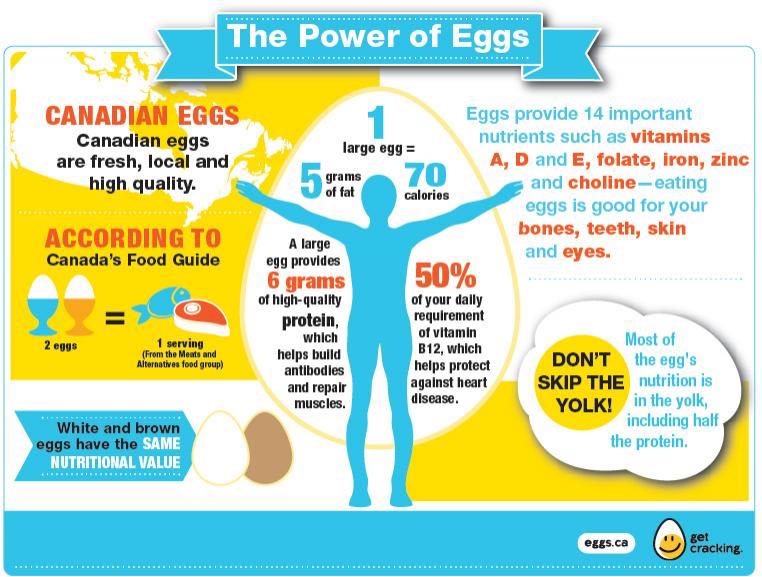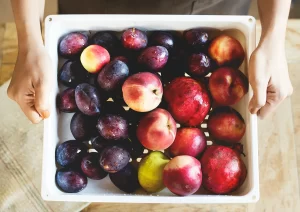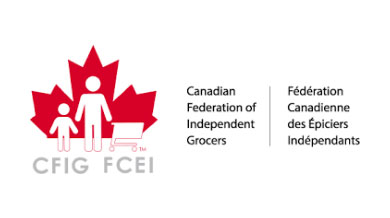

Join Vince’s Market as we tour Gray Ridge Egg Farms in Listowel, ON. Eggs are a big part of our lives. They often are the core of our morning nourishment and that small ingredient needed in binding our favourite holiday desserts. This week’s blog will focus on everything you want to know about EGGS and lead us to our newest video of our visit to Vince’s Market’s main egg supplier, Gray Ridge Egg Farms.
With the holiday season coming into full swing, eggs often become one of our staples. We hope you find today’s post both informative and entertaining. Visit eggs.ca for more information. Many of the details below were provided by the Egg Farmers of Canada, which is a not-for-profit organization helping hard-working Canadian farmers supply Canadians with fresh, local, high-quality eggs.
Did you know that the average Canadian consumes an average of 190 eggs per year? There are more than 1,000 egg farmers and farm families in Canada who produce fresh, local and high-quality eggs for Canadians to enjoy every single day.
What is the difference between white and brown eggs?
The color of the egg shell is not related to quality, nutrients, flavor, or cooking characteristics. White shelled eggs are produced by hens with white feathers and white ear lobes. Brown shelled eggs are produced by hens with red feathers and red ear lobes. Brown egg layers usually are slightly larger and require more food, thus brown eggs usually cost more than white eggs.
Storing eggs
If you are storing your eggs in the refrigerator, they should not be stored on the refrigerator door, but in the main body of the refrigerator to ensure that they keep a consistent and cool temperature. When storing hard-cooked eggs, you may notice a “gassy” odour in your refrigerator. The odour is caused by hydrogen sulphide, which forms when eggs are cooked. It’s harmless and usually dissipates in a few hours.
The light grey or greenish colour which forms on the outside surface of the yolk is the result of the reaction between sulfur and iron compounds in eggs. It tends to occur when the eggs are overcooked or when there is a high amount of iron in the cooking water. Although the colour is not very attractive, the eggs are still safe to eat. Their nutrient content and their flavour are unaffected.
Vince’s visits Gray Ridge Egg Farms
Gray Ridge Egg Farms has been Vince’s Market’s main supplier of eggs for several years. As a grading and selection centre, Gray Ridge works directly with the hundreds of Ontario egg farmers to source the best egg products for your table. Join us as we visit their centre in Listowel, ON to learn more about the process of what happens once the eggs arrive at their facility.
What do laying hens in Canada eat?
The feed for laying hens in Canada is steroid and hormone free. Egg farmers across the country follow feed regulations set by the Canadian Food Inspection Agency (CFIA). Egg farmers work with nutrition specialists to ensure laying hens receive a balanced diet consisting of grains, protein, fats, vitamins and minerals. Wheat, corn, barley, rye and oats in the feed provide energy, and are also sources of protein, fibre, vitamins and minerals. Legumes (like soybeans and peas), and oilseeds (like canola and flax), are more concentrated sources of dietary protein and fat. Since hens require high-quality balanced protein, some feeds used in Canada contain a small amount of animal by-products like dried eggshell, meat and bone meal.
Hens are naturally omnivorous, and if raised outdoors they will eat worms, insects, and in some cases small amphibians like frogs, in addition to plants and grains. Some hens are fed a plant-based diet and these eggs are available under vegetarian brands.
What is the difference between free-run and free-range?
Free run eggs are produced by hens that roam in open-concept barns with slat or litter-covered floors equipped with nests and perches. Free range eggs are produced in a similar environment to free run eggs but the hens have access to outdoor runs as well. Due to the severe Canadian climate, outdoor access is only seasonally available.
Why are some egg yolks darker than others?
The food the hens eat affects the colour of the egg yolk. A wheat-based diet for instance will produce a pale coloured yolk, while a corn-based diet will produce a darker coloured yolk.
Nutrition of eggs
One large (53g) Grade A egg contains 6 g of protein and only 70 calories. With 6 grams of the highest quality protein and 14 key nutrients, eggs provide the energy needed to keep you going. Eggs are one of the few foods considered to be a complete protein, because they contain all 9 essential amino acids. Amino acids are considered the “building blocks for the body” because they help form protein.
What are Omega-3 eggs and what’s the difference?
First let’s start by explaining what omega-3 fats are and why they’re good for you. Omega-3s are a type of polyunsaturated fat, or healthy fat, known to help protect your heart. They are essential for good health, but our bodies don’t naturally produce them, which is why we have to get them from foods such as salmon, certain types of oils and nuts, and omega-3 eggs.
We’ve all seen eggs labeled with omega-3 at grocery store and wondered how these differ from regular eggs. Omega-3 eggs are produced by feeding hens a diet containing flaxseed, a known source of omega-3. Flaxseed naturally contains alpha-linolenic acid (ALA), a plant-based type of omega-3 fatty acid.
How to tell if eggs are fresh
The easiest way to tell if your eggs are fresh is by the ‘Best Before Date’ on your egg carton, so it’s best to always keep your eggs stored in their original carton. A fresh egg will sink in water while an older egg will float. As an egg ages, the size of the air cell inside increases, causing it to float.
A cloudy egg white is a sign of freshness, not age: the cloudiness is the result of the high carbon dioxide content when the egg is laid.
Hope this post was informative! As always, we welcome your questions and feedback! You can leave a comment right here on the site or head on over and join in the conversation on Facebook (remember to ‘Like’ the page) and Twitter – (don’t forget to follow us there too).
If you haven’t already signed up to receive our weekly news delivered right to your inbox (including the blog, our weekly product feature, signup for our Coterie Program, and our recipe of the week), you will find the signup by clicking here.
Until next time,
Giancarlo







